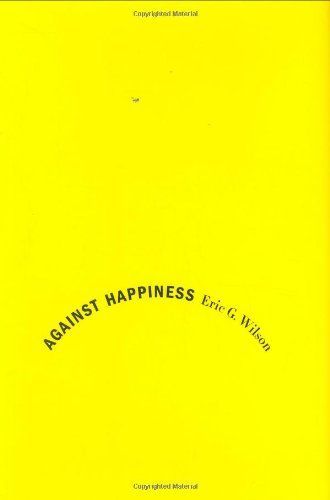
Against Happiness In Praise of Melancholy
Americans are addicted to happiness. When we're not popping pills, we leaf through scientific studies that take for granted our quest for happiness, or read self-help books by everyone from armchair philosophers and clinical psychologists to the Dalai Lama on how to achieve a trouble-free life: Stumbling on Happiness; Authentic Happiness: Using the New Positive Psychology to Realize Your Potential for Lasting Fulfillment; The Art of Happiness: A Handbook for Living. The titles themselves draw a stark portrait of the war on melancholy. More than any other generation, Americans of today believe in the transformative power of positive thinking. But who says we're supposed to be happy? Where does it say that in the Bible, or in the Constitution? In Against Happiness, the scholar Eric G. Wilson argues that melancholia is necessary to any thriving culture, that it is the muse of great literature, painting, music, and innovation—and that it is the force underlying original insights. Francisco Goya, Emily Dickinson, Marcel Proust, and Abraham Lincoln were all confirmed melancholics. So enough Prozac-ing of our brains. Let's embrace our depressive sides as the wellspring of creativity. What most people take for contentment, Wilson argues, is living death, and what the majority takes for depression is a vital force. In Against Happiness: In Praise of Melancholy, Wilson suggests it would be better to relish the blues that make humans people.
Reviews
I.m. ruzz@ruzz
Giovanni Garcia-Fenech @giovannigf
Trevor Rogers@trevor